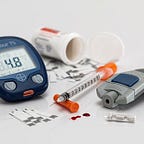How to Identify Vitamin B3 Deficiency and Prevent It Naturally
Vitamin B3, also known as niacin, is a crucial nutrient that plays an essential role in maintaining the health of our body. It is responsible for converting food into energy, regulating cholesterol levels, and maintaining healthy skin and nervous system. However, a deficiency in vitamin B3 can lead to several health problems. In this article, we will discuss the warning signs, treatment, and prevention of vitamin B3 deficiency.
What causes vitamin B3 deficiency?
Vitamin B3 deficiency is not common in developed countries, as most people consume enough niacin through their diet. However, certain factors can increase the risk of developing a deficiency, including:
- Poor diet: A diet that lacks niacin-rich foods such as poultry, fish, nuts, and legumes can lead to a deficiency.
- Alcoholism: Heavy alcohol consumption can interfere with the absorption and metabolism of niacin in the body.
- Certain medical conditions: Certain medical conditions like Crohn’s disease, ulcerative colitis, and celiac disease can interfere with niacin absorption in the body.
- Medications: Some medications, such as isoniazid, can interfere with the body’s ability to use niacin.
What are the warning signs of vitamin B3 deficiency?
The symptoms of vitamin B3 deficiency can vary from mild to severe, depending on the severity of the deficiency. The following are some of the common symptoms of vitamin B3 deficiency:
- Fatigue
- Weakness
- Loss of appetite
- Digestive problems such as nausea, vomiting, and diarrhea
- Skin rashes
- Headaches
- Irritability
- Depression
- Memory loss
- Cognitive decline
- Pellagra, a condition characterized by dermatitis, diarrhea, and dementia, can also occur in severe cases of niacin deficiency.
How is vitamin B3 deficiency treated?
The treatment of vitamin B3 deficiency involves increasing the intake of niacin through diet or supplements. The following are some of the ways to treat vitamin B3 deficiency:
- Dietary changes: Consuming niacin-rich foods like poultry, fish, nuts, and legumes can help increase the niacin intake.
- Niacin supplements: Niacin supplements are available in the form of tablets, capsules, and injections. The dosage of niacin supplements depends on the severity of the deficiency and the underlying cause.
- Medications: In severe cases of pellagra, medications such as corticosteroids may be used to reduce inflammation and prevent further damage.
Preventing vitamin B3 deficiency
Preventing vitamin B3 deficiency involves maintaining a healthy diet that includes niacin-rich foods. The following are some of the niacin-rich foods that can help prevent niacin deficiency:
- Chicken breast
- Tuna fish
- Salmon
- Peanuts
- Mushrooms
- Avocado
- Green peas
- Brown rice
- Whole wheat bread
In conclusion, vitamin B3 deficiency is a rare condition in developed countries, but it can occur due to various factors. The warning signs of vitamin B3 deficiency include fatigue, weakness, loss of appetite, digestive problems, skin rashes, headaches, irritability, depression, and memory loss. Treatment involves increasing the intake of niacin through diet, supplements, or medications. Preventing vitamin B3 deficiency involves consuming niacin-rich foods as part of a healthy diet. If you suspect that you have a vitamin B3 deficiency, consult your healthcare provider for an accurate diagnosis and treatment plan.
